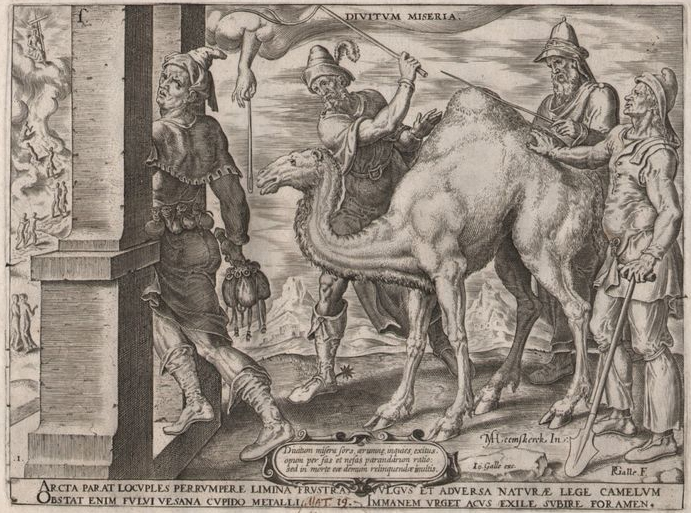Christian Art | Prayer With Jesus | Psalms | Glory Of God’s Reign | King David As A Boy | Audio KJV | Love Revealed By Jesus Christ | King James Audio Bible
Psalm 97 | King James Audio Bible
YouTube: Psalm 97 | KJV | King James Version | Audio Bible | Word Aloud
Psalm 97 commences with a declarative burst: ‘The Lord reigneth; let the earth rejoice; let the multitude of isles be glad thereof.’ The proclamation sets the tone for universal celebration, urging the earth and its distant isles to exult in response to the Lord’s sovereign rule. The very essence of the psalm lies in the rejoicing prompted by recognition of the Lord’s reign—a theme that resonates through each verse.
Verse two introduces striking imagery of God’s presence: ‘Clouds and darkness are round about him: righteousness and judgment are the habitation of his throne.’ Here, the psalmist envisions God seated on a throne enveloped in clouds and darkness, emphasizing the mysterious and awe-inspiring nature of the divine presence. Within this celestial dwelling, righteousness and judgment reign supreme, forming the bedrock of God’s eternal authority.
The psalm takes a dramatic turn in verse three: ‘A fire goeth before him, and burneth up his enemies round about.’ Imagery of a consuming fire preceding God vividly portrays God’s formidable power and the swift destruction of adversaries. This portrayal of divine justice aligns with an overarching theme of righteousness and judgment as inherent attributes of God’s reign.
Verse four intensifies this cosmic drama: ‘His lightnings enlightened the world: the earth saw, and trembled.’ This manifestation of God’s power is likened to lightning illuminating the world, causing earth itself to quiver in awe. Such awe-inspiring display of God’s might is not only a source of illumination but a catalyst for reverential fear.
Such imagery unfolds in verse five: ‘The hills melted like wax at the presence of the Lord, at the presence of the Lord of the whole earth.’ This portrayal of melting hills underscores profound impact of God’s presence, emphasizing God’s dominion over the entire earth. This visual metaphor captures the transformative power inherent in the divine encounter.
Celestial elements become witnesses to God’s righteousness in verse six: ‘The heavens declare his righteousness, and all the people see his glory.’ Here, the psalmist elevates the heavens as cosmic heralds, proclaiming righteousness of God. The visibility of God’s glory becomes a testament accessible to all people, transcending geographical and cultural boundaries.
The psalm declares primacy of God: ‘Confounded be all they that serve graven images, that boast themselves of idols: worship him, all ye gods. Zion heard, and was glad, and the daughters of Judah rejoiced because of thy judgments, O Lord.’ In these verses, the psalmist condemns worship of idols and challenges the false gods. Zion, representing the chosen people, rejoices in the divine judgments, aligning allegiance with the righteous rule of God.
Verse nine reiterates supremacy of God: ‘For thou, Lord, art high above all the earth: thou art exalted far above all gods.’ The psalmist emphasizes the exalted position of God, surpassing all earthly powers and false gods. This assertion serves as a theological anchor, reinforcing a central theme of divine majesty and sovereign authority.
The psalm is didactic in verse ten: ‘Ye that love the Lord, hate evil: he preserveth the souls of his saints; he delivereth them out of the hand of the wicked.’ The psalmist imparts wisdom, urging those who love God to abhor evil. Promise of divine preservation and deliverance from the hands of the wicked becomes a source of encouragement for the faithful.
Verse eleven expresses a profound metaphor: ‘Light is sown for the righteous, and gladness for the upright in heart.’ Imagery of light being sown for the righteous encapsulates a concept of divine illumination and joy bestowed upon those who possess upright hearts. This symbolizes inherent connection between righteousness and radiance of divine favour.
Psalm 97 concludes with an exhortation: ‘Rejoice in the Lord, ye righteous, and give thanks at the remembrance of his holiness.’ This call to rejoice and give thanks is fitting response to remembrance of God’s holiness. This verse encapsulates the psalm’s overarching theme—a call to joyous celebration in acknowledgment of the God’s reign and holiness.

Psalm 97 | King James Audio Bible KJV | Love Revealed By Jesus Christ
The Lord reigneth; let the earth rejoice; let the multitude of isles be glad thereof.
Clouds and darkness are round about him: righteousness and judgment are the habitation of his throne.
A fire goeth before him, and burneth up his enemies round about.
His lightnings enlightened the world: the earth saw, and trembled.
The hills melted like wax at the presence of the Lord, at the presence of the Lord of the whole earth.
The heavens declare his righteousness, and all the people see his glory.
Confounded be all they that serve graven images, that boast themselves of idols: worship him, all ye gods.
Zion heard, and was glad, and the daughters of Judah rejoiced because of thy judgments, O Lord.
For thou, Lord, art high above all the earth: thou art exalted far above all gods.
Ye that love the Lord, hate evil: he preserveth the souls of his saints; he delivereth them out of the hand of the wicked.
Light is sown for the righteous, and gladness for the upright in heart.
Rejoice in the Lord, ye righteous, and give thanks at the remembrance of his holiness.
Psalm 97 | King James Audio Bible KJV | Love Revealed By Jesus Christ
- Divine Sovereignty: Psalm 97 exalts in the proclamation of the Lord’s reign, emphasizing His supreme authority over the earth and its inhabitants.
- Majestic Imagery: The psalm employs vivid imagery, including clouds, darkness, fire, lightning, and melting hills, to depict the awe-inspiring nature of the Lord’s presence and power.
- Righteousness And Judgment: Central to the psalm is the theme of righteousness and judgment as foundational aspects of the Lord’s character, shaping His eternal throne.
- Cosmic Witness: The heavens and celestial elements serve as witnesses, declaring the righteousness of the Lord to all people and transcending geographical and cultural boundaries.
- Condemnation Of Idolatry: The psalm condemns the worship of idols and challenges false gods, advocating worship exclusively for the Lord.
- Rejoicing In Divine Judgments: Zion and the daughters of Judah rejoice in the divine judgments, aligning themselves with the righteous rule of the Lord.
- Supremacy Of The Lord: The psalm emphasizes the Lord’s exalted position above all the earth and far beyond all gods, reinforcing His sovereign authority.
- Instruction For The Faithful: Wisdom is imparted to those who love the Lord, urging them to hate evil. The promise of divine preservation and deliverance is offered as encouragement.
- Metaphor Of Light: The metaphor of light sown for the righteous symbolizes divine illumination and joy, emphasizing the connection between righteousness and divine favour.
- Exhortation To Rejoice: The psalm concludes with an exhortation for the righteous to rejoice in the Lord and give thanks, emphasizing the celebration of His reign and holiness.








